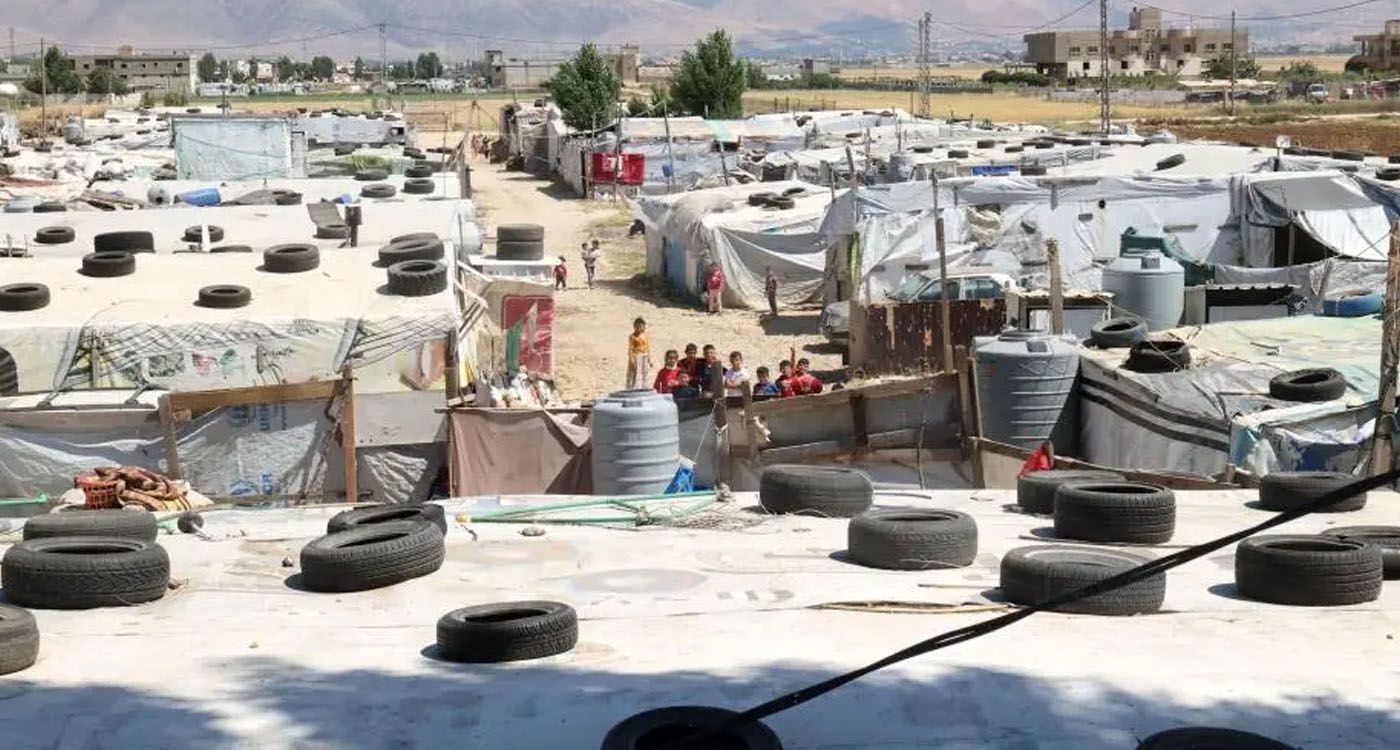
In his inaugural speech, President Joseph Aoun vowed to seek a quick solution for the Syrian refugee crisis in Lebanon by ensuring their return home following the ouster of Syrian President Bashar al-Assad.
Describing the Syrian refugees’ protracted presence as having existential implications for Lebanon, Aoun pledged in his address before parliament: “We will work with Syria and the international community to resolve this crisis, far from racist proposals or negative approaches, and we will work with the incoming government and the National Assembly to establish a clear, immediately applicable mechanism that will allow these refugees to return to their country.”
An estimated 1.5 million war-displaced and migrant Syrians, who according to unofficial counts exceeded 2 million, have fled to Lebanon since the start of the war in Syria in 2011.
The Lebanese authorities have long been criticized by Syrian and international aid organizations for reportedly trying to force refugees back during Assad’s rule. Now that this threat is no longer valid, shouldn’t they be expected to return home as underlined by the new president?
Some of the displaced returned to Syria in the past months, fleeing Israel’s war with Hezbollah, and others after Assad’s ouster, but the majority have not budged.
“While more than 420,000 Syrian refugees returned to Syria during the war, no more than 70,000 to date went back home following the ceasefire and toppling of the Baath regime on December 8,” Minister of the Displaced Issam Sharafeddin told This is Beirut.
“This large number (of returnees) indicates that Syria had its doors open to the return of the displaced Syrians and they were absorbed within 10 days in Syria,” Sharafeddin said.
The minister revealed that the authorities had asked the UN High Commissioner for Refugees (UNHCR) to start paying material and in-kind assistance to the returning displaced in Syria, and asked them to encourage the displaced to return home after the fear of arrests by the former Syrian regime has been removed.
“Their answer,” he said, “was that they could not take such a decision before security was completely established, which would require several months.”
Sharafeddin stressed that “it is the responsibility of the incoming government to start working on the issue and negotiate with the new leadership in Syria in order to activate the return of the displaced to their country.”
However, returning is not as straightforward for many displaced.
According to aid organizations, the majority remain cautious for many reasons, notably insecurity. Israeli advances and relentless bombardments in Syria, clashes between Turkish-backed Syrian factions and US-supported Kurdish forces in the northeast and ambiguity over the direction taken by the new rulers of Syria, led by the Islamist Hay’at Tahriri al-Sham (HTS), are among key reasons for refugees’ reluctance to go back home.
The humanitarian groups argue that Syria’s economic situation remains highly volatile, as countless homes, businesses and entire towns have been wiped out by the war, and infrastructure is severely damaged, leading many to wait for more clarity over the country’s future before deciding to return.
In an interview with This is Beirut, UNHCR spokesperson Lisa Abu Khaled said the agency hopes recent developments in Syria will eventually bring peace, security, stability and an end to the largest displacement crisis in the world.
“UNHCR is committed to assisting refugees in Lebanon and other countries in the region who are ready to return to Syria,” she said, adding that “the number of Syrian refugees in neighboring countries who told UNHCR they plan to return home in the coming 12 months has risen significantly.”
She stressed, however, that “the return to their country of origin must be at a time of their choosing, must be voluntary, dignified and safe.”
More than 13 million Syrians had been forced to flee their homes in the past 14 years, both within and outside of Syria.
As of January 15, UNHCR estimates that more than 195,000 Syrians have crossed back into Syria from neighboring countries since December 8, 2024.
During a visit to Lebanon last week, UN Secretary General Antonio Guterres downplayed UN assistance provided to displaced Syrians in Lebanon as a reason for their reluctance to return home.
“I do not think that it is because of the meager, very meager support that we provide to Syrian refugees in Lebanon, that they do not go to Syria,” Guterres told a press conference at the end of his two-day visit. “I think it's because the situation in Syria is still far from giving the guarantees that the refugees themselves feel necessary, but of course, any Syrian refugee that wants to go back to [Syria] will be supported by us.”
In the meantime, the fall of the Syrian regime triggered another category of Syrian displacement to Lebanon.
Senior officials from Assad’s regime and their relatives have reportedly sought refuge in Lebanon with Hezbollah's assistance, to escape reprisals by the HTS-led rebels. Ali Mamlouk, a sanctioned high-ranking intelligence official and adviser to Assad, who is also wanted by Lebanese authorities on terror charges, is allegedly among them, a claim that was denied by Interior Minister Bassam Mawlawi.
In the last few weeks, the Lebanese authorities have arrested dozens of officers, soldiers and supporters of the deposed Syrian president and handed them over to the new rulers in Damascus. However, many of the former regime's key figures have reportedly managed to flee abroad through Beirut airport.
Obviously, Lebanon’s trials with Syrian displacement are far from being resolved anytime soon.




Comments